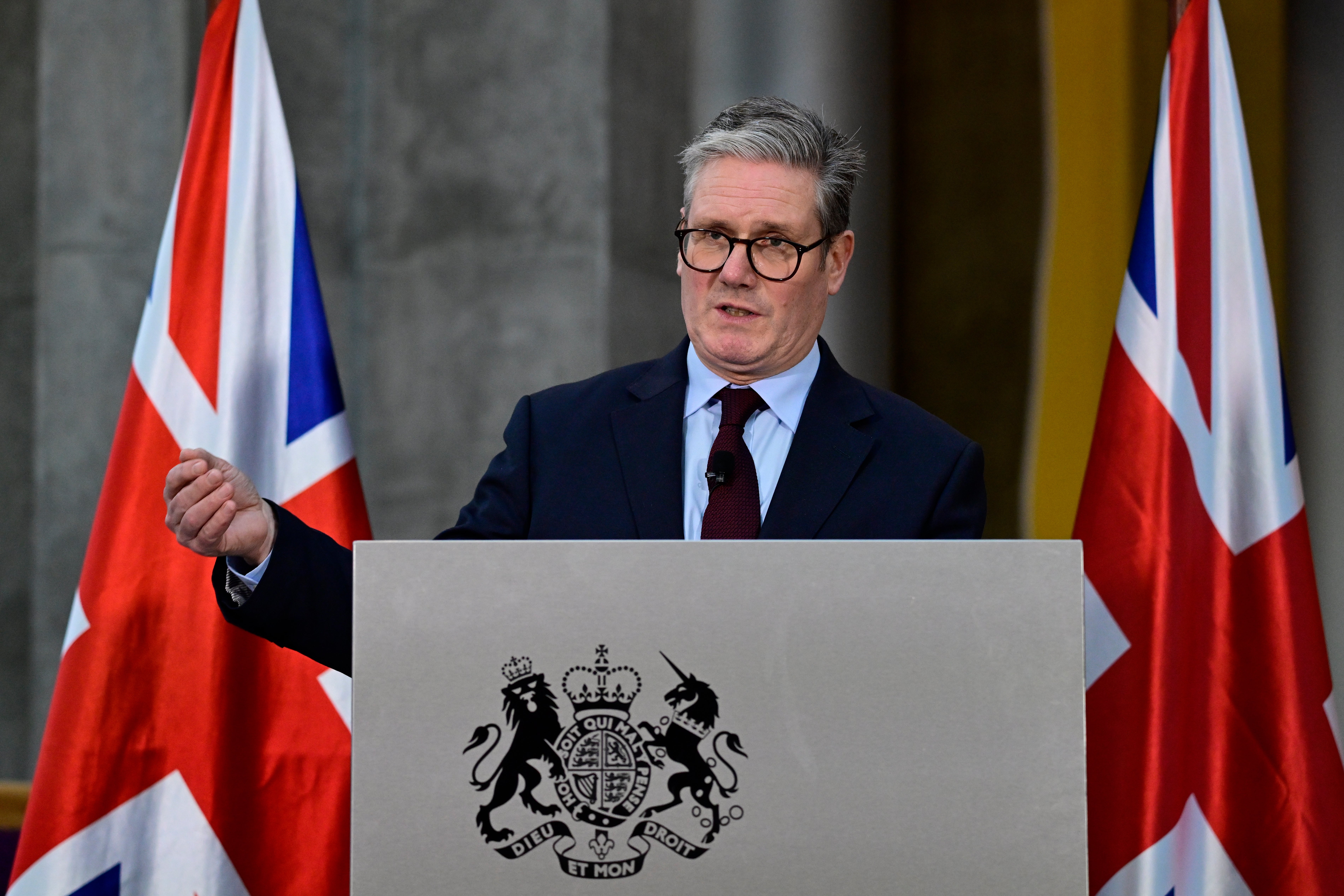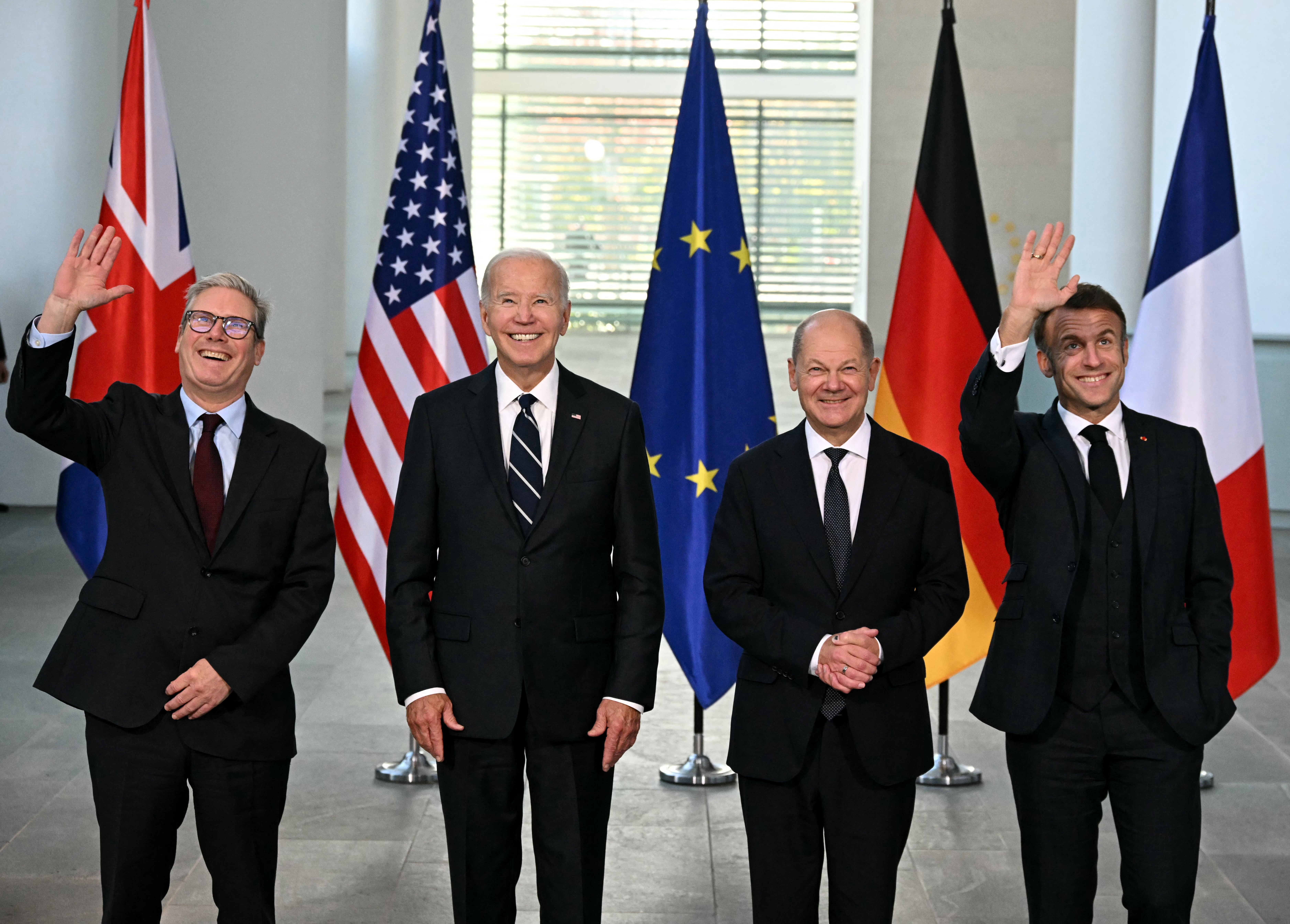Starmer says death of Hamas leader is an opportunity to broker ceasefire in Gaza
Sir Keir Starmer says diplomacy is still the key way to end the conflict between Israel and Hamas, as well as Hezbollah

Sir Keir Starmer has urged the international community to “make the most of this moment” in pushing for an end to conflict in the Middle East, as he met allies in Germany following the death of Hamas leader Yahya Sinwar.
In remarks echoing US president Joe Biden, the prime minister said the killing of Yahya Sinwar offered an “opportunity” to intensify ceasefire negotiations between Israel and Hamas.
He made the comments after joining US, French and German leaders on Friday.
At a press conference held after discussions with the so-called “Quad” nations, Sir Keir said that “the answer is diplomacy” for resolving the enduring conflict in Gaza and the wider region.
The trip to Berlin was arranged after Israel announced on Thursday that its military had killed Sinwar, presenting his death as a significant milestone in the country’s campaign against the group.
Sir Keir said: “No-one should mourn the death of Hamas leader Sinwar. On his hands is the blood of innocent Israelis killed on 7 October and over the years of terror, as well as the blood of Palestinian people who suffered in the chaos and violence that he sought and celebrated.
“Allies will keep working together to de-escalate across the region, because we know there is no military-only solution.
“The answer is diplomacy and now we must make the most of this moment. What is needed now is a ceasefire, the immediate and unconditional release of all hostages, immediate access to humanitarian aid, and a return to the path towards the two-state solution, as the only way to deliver long-term peace and security.”
He added that he believed “the death of Sinwar provides an opportunity for a step towards that ceasefire that we have long called for.”

Officials in Washington expressed measured optimism that his death might remove a key obstacle in faltering ceasefire talks.
Mr Biden told reporters after the Berlin meeting that he and his counterparts “think that there is a possibility of working for a ceasefire in Lebanon and it’s going to be harder in Gaza.”
He added: “But we agree there has to be an outcome of what happens the day after.”
Earlier this month, Israel opened a new front in its war with Hezbollah, escalating its bombardment of Lebanon and a ground offensive after a year of trading fire across borders.
Hezbollah has been firing across the border into northern Israel since a day after allies Hamas broke across the Israeli border on 7 October, killing 1,200 people and taking 251 more hostage in Gaza. Around 100 remain captive in the enclave.
Hezbollah has declared they will not cease fighting against Israel until Israel ends its war in Gaza.
However, after a year of attempts to broker a ceasefire between Israel and Hamas, led by the US, Qatar, and Egypt, negotiations have broken down.
In his first public remarks since the military announced the death of Sinwar, Israeli prime minister Benjamin Netanyahu stated that the country will continue fighting until all Israeli hostages are free and will maintain control over Gaza long enough to ensure Hamas does not rearm.
Sir Keir reiterated a warning to Israel on Friday that the world will not tolerate “any more excuses” for not allowing humanitarian aid into Gaza, where more than 42,000 Palestinians have been killed in Israel’s offensive since 7 October.
Join our commenting forum
Join thought-provoking conversations, follow other Independent readers and see their replies
Comments